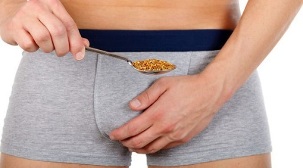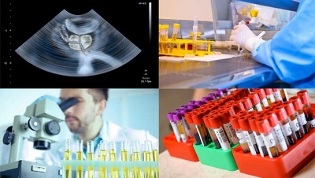
Prostatitis is one of the most common urological diseases in men.
According to a study by the World Health Organization, at least 30% of men between the ages of 20 and 50 suffer from this disease, and this insidious disease increasingly affects young people every year. Inflammation of this organ has been recorded even in children aged 15-16.
Causes of chronic prostatitis
The disease itself is acute and chronic. Chronic prostatitis can develop due to inappropriate or ineffective treatment of acute prostatitis. Unfortunately, in chronic forms of prostatitis, one cannot expect a full recovery.
Due to the development of the disease, there is a difference between congestive (congestive) and infectious prostatitis.
Congestive prostatitis occurs in the circulatory system of the pelvic area and the stagnation of prostate secretions. Over time, the poor permeability of this area and the regular accumulation of blood can lead to the development of inflammatory foci. As a result, the prostate is deformed, which in turn negatively affects neighboring organs.
The enlarged organs can contract the urinary tract, destroy the human urinary function, and compress the bladder, causing the urge to urinate regularly. Sedentary, a sedentary lifestyle usually affects the development of prostate congestion. Bad habits and obesity also increase the likelihood of illness.
The cause of infectious diseases is much more difficult than congestive diseases, because infectious diseases can develop on the basis of many venereal diseases and fungal diseases. Infections that enter the human body through sexual contact will spread throughout the body, but the prostate is the first route of infection, where most pathogens accumulate. Over time, the multiplication of bacteria in this organ can cause inflammation, which in turn leads to the formation of purulent foci (scarring remains even after healing).
The infection will not stop on the prostate. Some bacteria will enter the bladder and kidneys through the urethra, causing regular urination.
However, infectious prostatitis is not always caused by sexually transmitted diseases. There are thousands of bacteria and microorganisms in the human body that regularly come from the world around us. Immunity can easily cope with most people, unless, of course, the immunity is weakened due to the negative effects of smoking, alcoholism, constant stress and neurosis. In this case, the immune system cannot fully regulate the development of bacteria or fungi, resulting in their uncontrolled reproduction and ultimately affecting the prostate.
Symptoms of chronic prostatitis
The first signs of chronic prostatitis first appear in the urge to urinate regularly and discomfort in the perineum, similar to pain. If you gently press your lower abdomen or anus, you will feel this especially.
Uneven urine flow is considered another symptom of chronic prostatitis. Spraying in different directions indicates muscle deformation, which can block the urethra (muscles are located at the bottom of the prostate).
The weakness of the jet is also a negative signal, which more indicates the infectiousness of the development of the disease, in which multiple organs of the urogenital system are simultaneously infected. In some cases, erection problems will occur, but more reasons are people's psychological difficulties.
Disease diagnosis
Whether it is normal or chronic, infectious or stagnant, the initial diagnosis of prostatitis is the same. This treatment is usually performed by an andrologist (in some cases a urologist).

After consultation and internal examination, the doctor will write a referral for examination:
- Smear.A special probe is used for collection, which is inserted into the patient’s urethra (analysis allows you to find out which and how many bacteria are in the patient’s urethra). Before taking the test, you need to avoid urinating for about 4 hours.
- Prostatic fluid analysis.The structure of the prostate is porous, and certain parts of the organ are simply blocked during inflammation. Although the inflammatory process in them is in full swing, routine examinations have not found any results. This is where the secret (prostatic fluid) is analyzed. The doctor massages the prostate through the anus to squeeze out the secretion from the inflamed area and then collect it from the urethra.
- Urinalysis.Usually used after smears, it allows you to find the pathology of the bladder and kidneys.
- Blood test-The infection is analyzed.
- Ultrasound-Examine the prostate, bladder and kidneys.
Treatment of male chronic prostatitis
After completing all analyses, the andrologist continues treatment. In the case of congestive prostatitis, treatment is simpler. Usually, it includes taking antibiotics and immunosuppressive drugs. Suppositories are used to clear inflammation and must be inserted into the anus.
For infectious prostatitis, everything becomes more complicated. In order to diagnose more accurately, some checks must be performed again. Treatment will be prescribed based on the severity of the infection. The most common are droppers and antibiotics. The second step will be immune correction and removal of toxins from the body. Combined with medical treatment, prostate massage and physical therapy (electrophoresis and magnetic therapy) can be used.
The hidden danger of infectious prostatitis lies in the fact that it is said to be completely cured, and certain pathogens remain in the body and multiply over time, causing prostatitis again. To prevent this, it is recommended to review regularly and have a doctor check.
Even after a full recovery, patients often complain of perineal discomfort and frequent urge to urinate. This situation is not uncommon. The fact is that even after the inflammatory process is eliminated, the scar remains on the organ, thereby affecting the normal function of the organ. In order to eliminate this problem, there are many drugs (suppositories with enzymes) for scar absorption.
Prevent chronic prostatitis
The treatment of chronic prostatitis is to minimize and promptly inhibit the new inflammatory process. In order to achieve long-term relief and avoid regular visits to the hospital, you need to completely change your lifestyle.
For beginners, do not catch a cold under any circumstances. Any decrease in temperature, even the most insignificant decrease, may cause the condition to worsen. Sitting in a cold seat on a bus or sitting in a vent is sufficient. If possible, avoid sitting for a long time, or do a five-minute warm-up at least once an hour, and say goodbye to all bad habits:Smoking and drinking are strictly prohibited!
In addition, for chronic prostatitis, it is also important to follow a special diet. It is not recommended that you consume smoked products, fatty foods, beverages with high carbonate content and certain spices (hot spices).

Include in your diet:
- Chicken;
- fish;
- Fermented dairy products (cheese, kefir, low-fat yogurt);
- Vegetables;
- Fruit;
- Honey.
The use of pumpkin seeds has a very positive effect on the prostate.
If you are diagnosed with chronic prostatitis, please don't be depressed! Yes, this disease is very complicated, but if you follow all the doctor’s recommendations and live a healthy lifestyle, the pain and constant discomfort will not bother you for a long time. Careful care of your health and regular examinations by andrologists will enable you to live a colorful life!

























